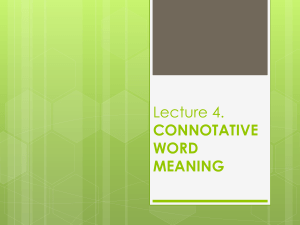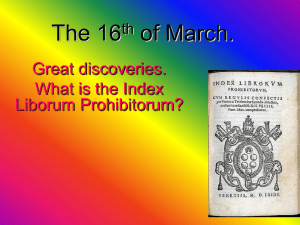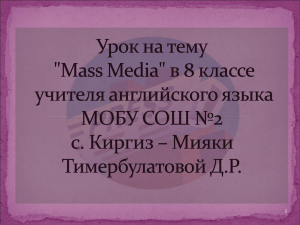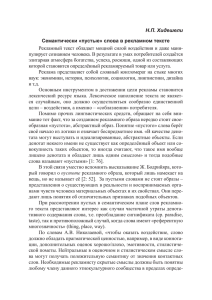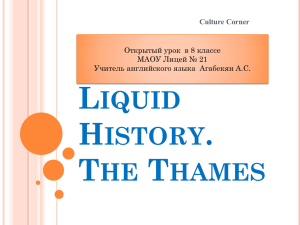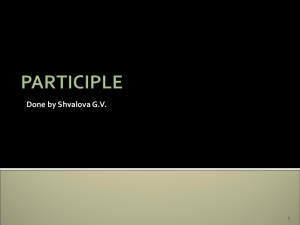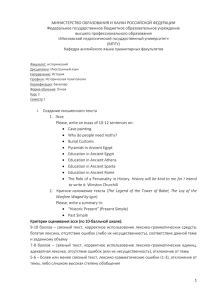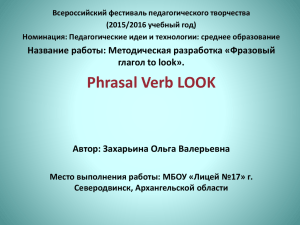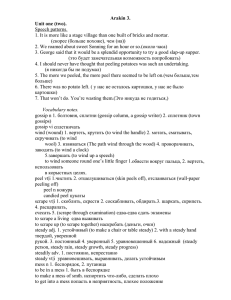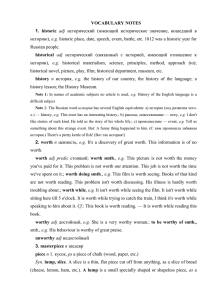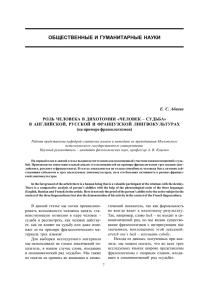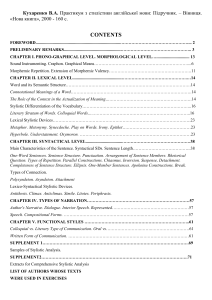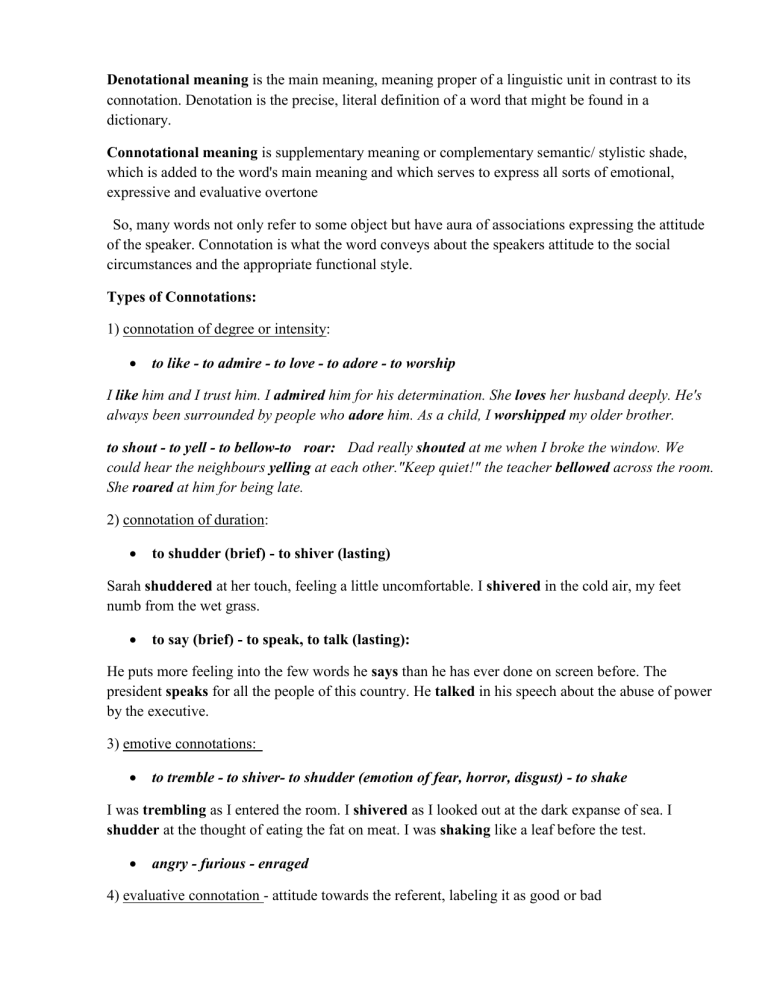
Denotational meaning is the main meaning, meaning proper of a linguistic unit in contrast to its connotation. Denotation is the precise, literal definition of a word that might be found in a dictionary. Connotational meaning is supplementary meaning or complementary semantic/ stylistic shade, which is added to the word's main meaning and which serves to express all sorts of emotional, expressive and evaluative overtone So, many words not only refer to some object but have aura of associations expressing the attitude of the speaker. Connotation is what the word conveys about the speakers attitude to the social circumstances and the appropriate functional style. Types of Connotations: 1) connotation of degree or intensity: to like - to admire - to love - to adore - to worship I like him and I trust him. I admired him for his determination. She loves her husband deeply. He's always been surrounded by people who adore him. As a child, I worshipped my older brother. to shout - to yell - to bellow-to roar: Dad really shouted at me when I broke the window. We could hear the neighbours yelling at each other."Keep quiet!" the teacher bellowed across the room. She roared at him for being late. 2) connotation of duration: to shudder (brief) - to shiver (lasting) Sarah shuddered at her touch, feeling a little uncomfortable. I shivered in the cold air, my feet numb from the wet grass. to say (brief) - to speak, to talk (lasting): He puts more feeling into the few words he says than he has ever done on screen before. The president speaks for all the people of this country. He talked in his speech about the abuse of power by the executive. 3) emotive connotations: to tremble - to shiver- to shudder (emotion of fear, horror, disgust) - to shake I was trembling as I entered the room. I shivered as I looked out at the dark expanse of sea. I shudder at the thought of eating the fat on meat. I was shaking like a leaf before the test. angry - furious - enraged 4) evaluative connotation - attitude towards the referent, labeling it as good or bad well known - famous - notorious ( negative connotation) - celebrated There is a portrait of a well-known scientist... You're the most famous couple in America. This man is notorious criminal. Celebrated sculptures. 5)causative connotation: to blush - from modesty, shame or embarassment/ to redden - from anger or indignation I blush to admit that I haven't read it. He could feel his ears redden as he started to say smth.... 6)connotation of manner: to stroll - to stride - to trot - to pace - to swagger - to stagger - to stumble We were strolling along, laughing and joking. She strode confidently into the room. A horse trotted past us. I paced along the shore, deep in thought. He swaggered down the street with a foolish grin on his face. The horse stumbled and almost fell/ 7) connotation of attendant circumstances: to peep at smb/smth through a hole, a crack or opening, from a half-closed door, a curtain. to peer at smb/smth in darkness, through the fog, from a great distance, through dimmed glasses or windows He peeped at the woman through a keyhole. She peered closely at the lights in the darkness. 8) Connotation of attendant features: pretty - handsome - beautiful 9) stylistic connotation: girl - girlie (colloquial), lass, lassie (dialect), bird, birdie, jane, fluff, skirt (slang), maiden (poetic), damsel (archaic) to leave - to be off, to clear out (coll.), to beat it, to hoof it (sl) to depart (formal) Connotation and denotation are two principal methods of describing the meanings of words.
